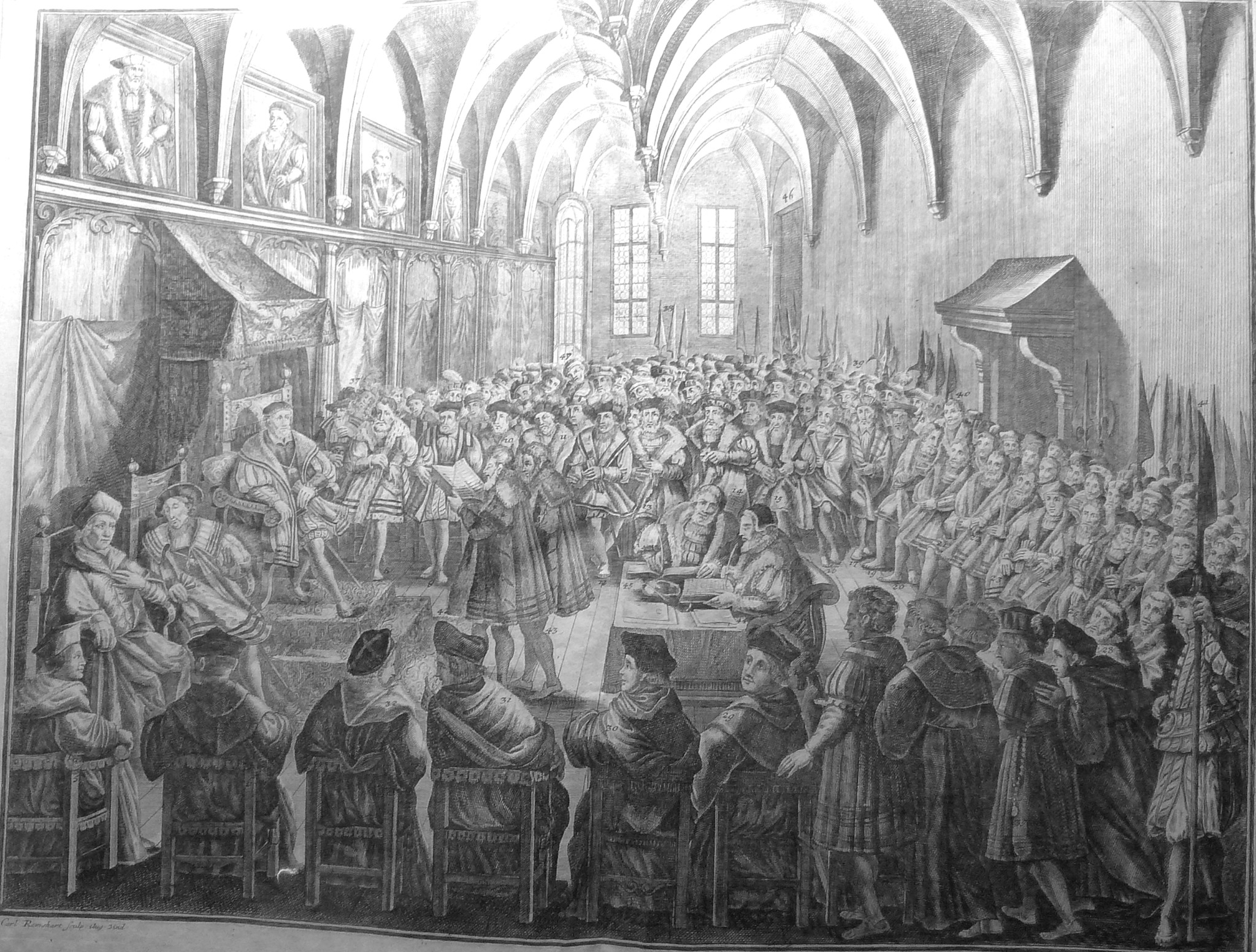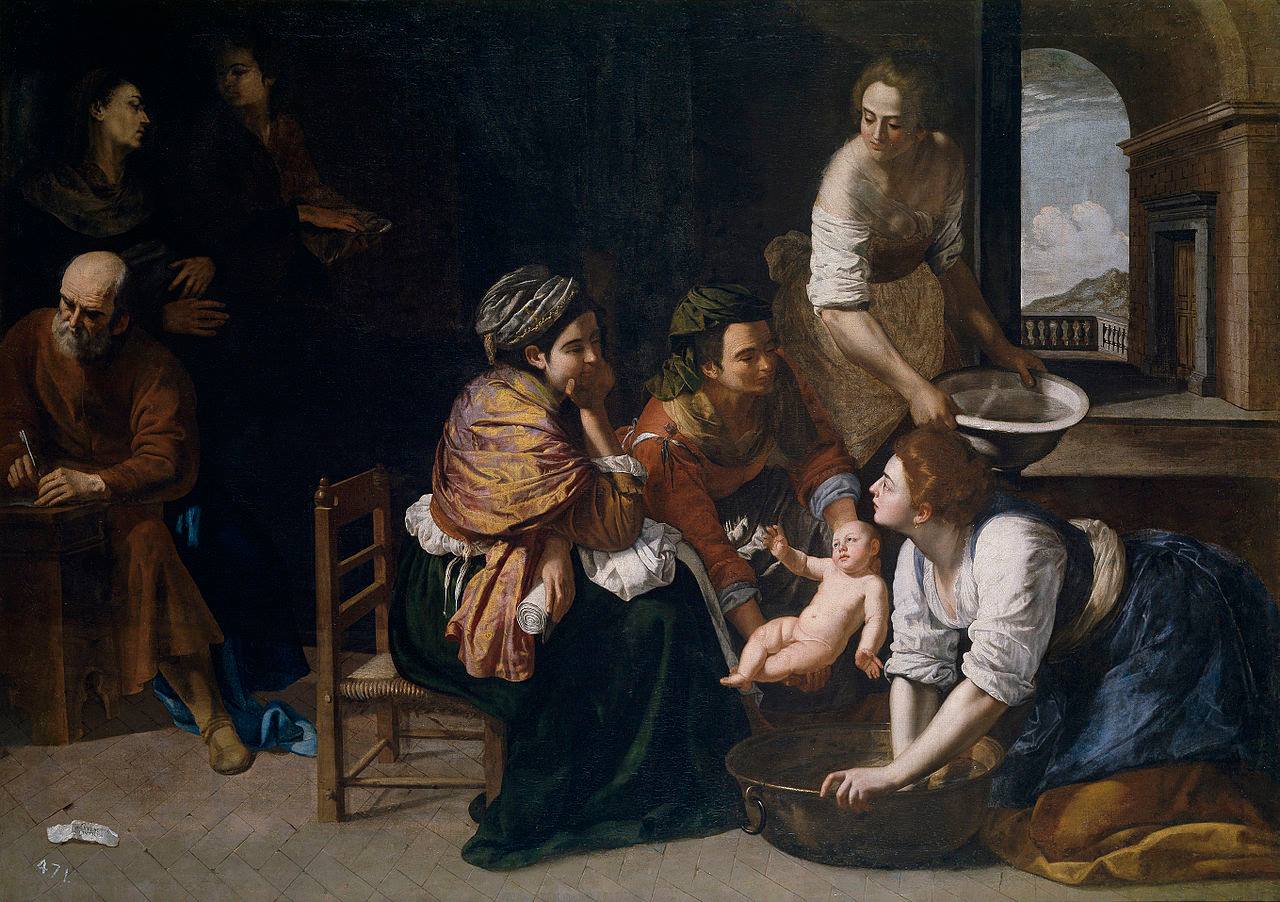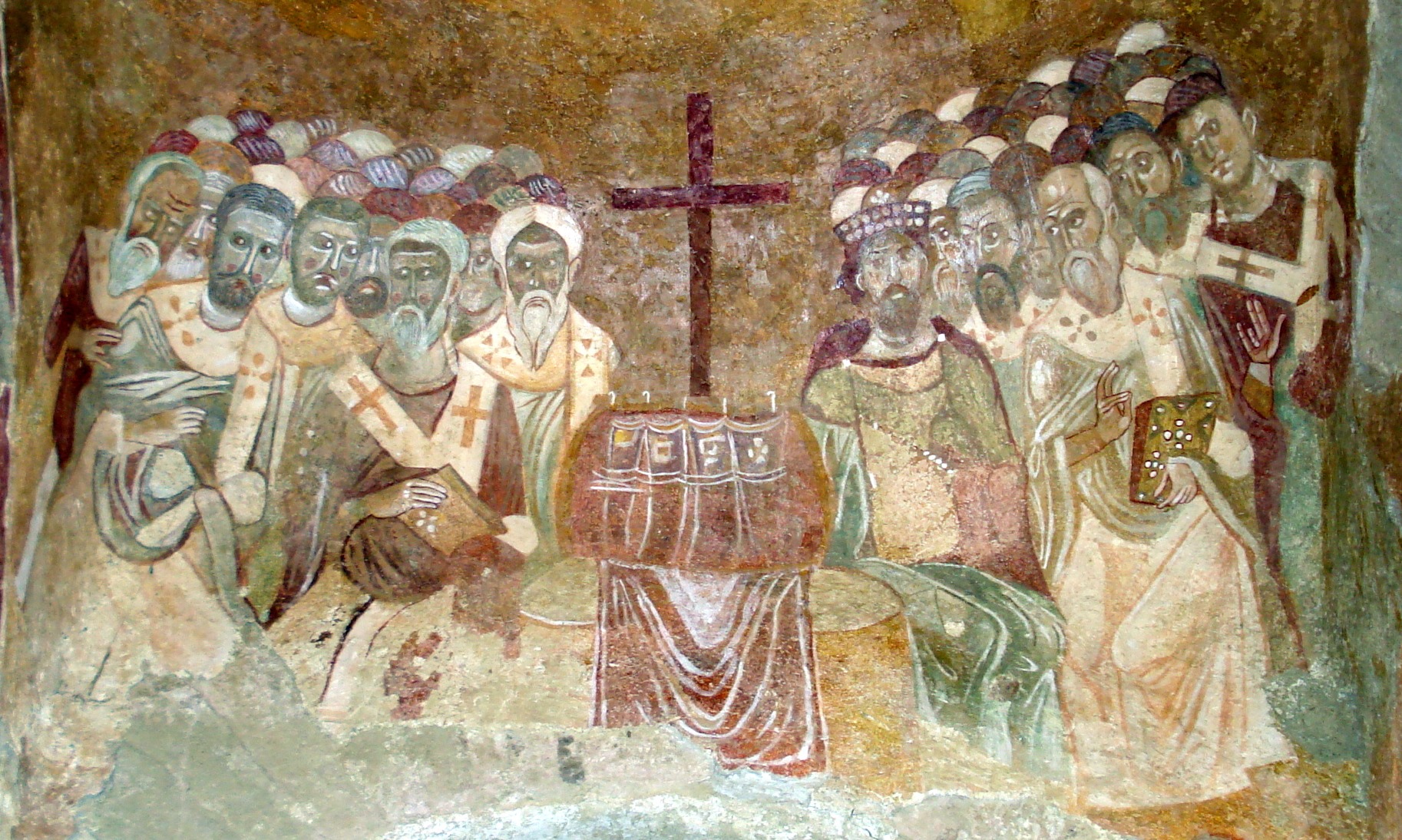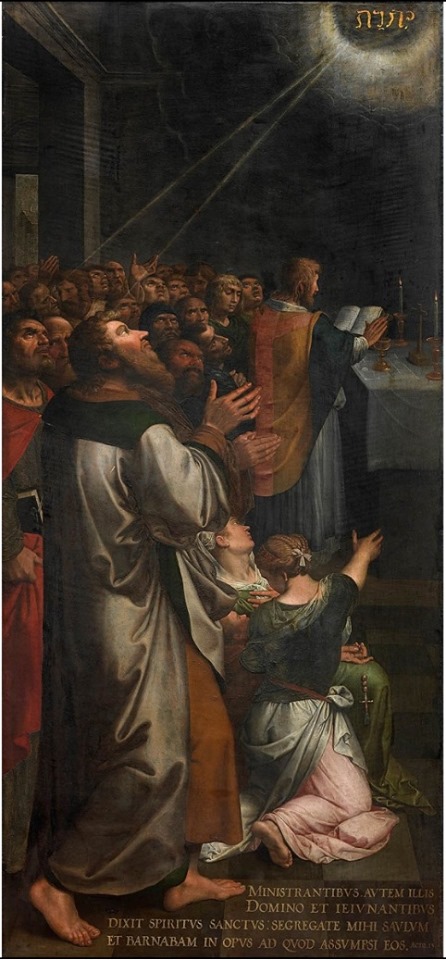Today is the Commemoration of the Presentation of the Augsburg Confession. Below is a copy of Dr. Benjamin Mayes’ sermon from chapel this morning, which focused on the confession, laying out the history of its presentation on June 25, 1530:
“Beware lest anyone take you captive through philosophy and empty deceit, according to the tradition of men, according to the basic principles of the world, and not according to Christ” (Col. 2:8).
Dearly beloved: Today’s text is a warning. It is possible to be deceived, and you must take care that this does not happen. If you are deceived about our holy faith, if you go astray with regard to God, you are being “taken captive.” In that case you would no longer belong to God, you would belong to someone else. You would be a mental captive of man or of the devil.
It’s a warning. It’s possible to be deceived. We do not agree with the once-saved-always-saved doctrine. Salvation is not as easy as making a decision for Jesus to come into your heart. Grace is not cheap, it is costly. It cost the Lord Jesus His blood, and once you belong to Him through Baptism and faith, it may cost you your life.
It often comes with a burden—the holy cross. People who belong to the Lord Jesus, what happens to them? The Holy Spirit comes to them, raises them from their spiritual death, and begins to make them really alive. But at the same time He conforms them to the Lord Jesus, and in this life, our Lord’s path was marked by the cross and suffering. It was also marked by the devil’s temptations. And that is what happens to us, who belong to the Lord Jesus.
It is not an easy life. There will be temptation, attempts at deception by the devil and other people. If they deceive you about our holy faith, you will be taken captive. Therefore take to heart St. Paul’s warning: “Beware lest anyone take you captive through philosophy and empty deceit, according to the tradition of men, according to the basic principles of the world, and not according to Christ” (Col. 2:8).
In this same passage, Paul shows there are two categories of empty, deceitful philosophy: according to the tradition of men, and according to the basic principles of the world. The first is through superstition; the second is through secular thinking.
What Paul means by “philosophy” is not exactly the same as everything that’s called “philosophy” today. At its best, philosophy is clear, rational thinking about the created world, at a high level—and that is a gift of God. The problem is when this clear, rational thinking wants to make judgments on the will of God, and that happens when it takes something else as a source of truth that is higher than God’s revelation. And again, the two basic categories are “tradition of men” and “basic principles of the world,” that is, human inventions and secular, scientific thinking when it’s misapplied.
Thanks be to God, we have an excellent statement of the doctrine that is “according to Christ” in the Augsburg Confession, which was written 489 years ago, in the year of our Lord 1530. If you are a student at our Seminary, you will study this confession in detail. It sets forth everything of which today’s reading speaks in abundant detail: perseverance in true doctrine and faith, discernment about which traditions must be kept and which must be rejected, the person of Christ, Baptism, Christian perfection, the bondage of the will in conversion to God, the holy Law of God, and the atonement—in which it was not our works, but Christ who reconciled the Father to us, and who was our propitiation, by His obedience to the Law and His innocent death, and that we receive all His benefits through faith alone. All of those themes are prominent in the Augsburg Confession.
The presentation of the Augsburg Confession in 1530 is a remarkable story of steadfast faith under pressure to conform to the popular errors of the day. When Emperor Charles V, the mightiest man in Europe, summoned the Lutherans to the congress that would take place in Augsburg, the tone was peaceful. It seemed that the Lutheran confession of faith would be given a fair hearing. Martin Luther, Philipp Melanchthon, and Elector John the Steadfast were naively overjoyed.
But that joy was quickly shattered when Melanchthon reached Augsburg. A book by John Eck was being read by everyone, accusing Lutherans of every heresy imaginable, and the book had been commissioned by the Emperor’s brother Ferdinand. It showed Melanchthon and the Evangelical side that there would be no peace. The Word of God would not be given free course. The Evangelicals would be branded as heretics. The memory of John Hus burning at the stake for his true teaching a century before was in their minds.
The important thing would be to unify as many Evangelicals in a common Lutheran confession and to get this read before the Emperor, since that was like reading a bill in congress. Once it was read to the Emperor, it was in the public record and debate could ensue—debate that could go favorably, or at least could last for a while. The Lutheran confession would in that case have some legal protection for a time.
The emperor and his retinue arrived in Augsburg on June 15, 1530. Immediately he requested that Elector John command that all Evangelical, Gospel-centered preaching must cease. The meeting of the Emperor with Elector John and the other princes was immediately a time of civil jostling. When the pope’s ambassador saw the Emperor greeting the princes, he raised his hands to give a benediction. The Emperor with all the Catholics knelt to receive the blessing from the pope’s ambassador. Elector John and the other Protestant princes remained standing in defiance. Then, in the Augsburg cathedral, the Emperor again knelt in prayer, while the Elector and his ally Landgrave Philipp of Hesse remained standing.
That night, at the Emperor’s quarters, he again made his demands to the Protestant princes. First, there must be no Evangelical preaching. Second, the Protestant princes must join in the Corpus Christi parade the next day, following the consecrated bread of the Lord’s Supper in a display case through the streets of the city, showing by their action that they approved.
Tired though the princes were, they refused to comply. The Margrave of Brandenburg said, “We plead with his Imperial Majesty not to remain in this demand since we preach God’s pure Word as did Augustin, Hilary and other teachers of the past; of this his Imperial Majesty may convince himself. We cannot live without the Word of God nor deny the gospel with a good conscience.”
Landgrave Phillip of Hesse said, “Imperial Majesty’s conscience is not lord and master over our conscience.”
Then the Margrave of Brandenburg said, “Before I let any one take from me the Word of God and ask me to deny my God I will kneel and let them strike off my head.”
In response to this bold resistance, the Emperor gave them until the next morning to reconsider. That night, the Wittenberg theologians worked on a written response. It read, “The Sacrament was not instituted to be worshiped like the brazen serpent of the Jews. We are here to confess the truth and not to confirm abuses.” Despite all pressures, the Lutheran princes stood firm and refused to comply. The Emperor ended up walking in the procession with only about a hundred citizens. This shows the courage of these leading laymen.
In the next few days, the Emperor attempted to prevent the Augsburg Confession from being read and thus entered into the legal record, but the political maneuvering of the Lutheran princes tied his hands. Finally, the confession was read on June 25, 1530, at 3:00 in the afternoon. It was read in a small assembly hall, to avoid the presence of a large crowd. Only about 200 people could fit in the room. The Saxon chancellors Georg Brück and Christian Beyer stepped forward, one with the German confession, the other with the Latin. Beyer read the German version aloud, a feat which took about two hours.
This date, June 25th, marks the real birth of the Lutheran Church as a distinct confession from Roman and Reformed churches. It is the real Reformation Day. There is a lot more that happened. There’s no time now to tell about how the Confession was rejected and how war impended over Germany for the next half a year. Only in 1531, when the Emperor had his hands full with the Turks in southeast Europe, and the military strength of the Lutherans had grown, could fears of invasion be turned into rejoicing and thanksgiving to God.
Our fathers in the faith remained steadfast and did not conform to peer pressure and the popular errors of their day. As a result, we have this glorious, golden statement of faith, which helps us to remain faithful to Christ even now in our day.
Dearly beloved, the pressures to conform to the philosophy and vain deceit of the world are strong, and the battle to maintain the right faith in our hearts and congregations is serious. But the weapons of our warfare are here for you, and with them you are safe. Therefore study, learn, pray, and grow. These things are here for you. May God root you and build you up in Christ our Lord and establish you in the faith, just as you were taught. To Christ be all the glory! Amen.
Dr. Mayes is Assistant Professor of Historical Theology here at CTSFW. Quotes were pulled from “Corpus Reformatorum” 2:106, 114, 115, quoted in M. Reu, “The Augsburg Confession: A Collection of Sources with An Historical Introduction” (Chicago: Wartburg, 1930).




